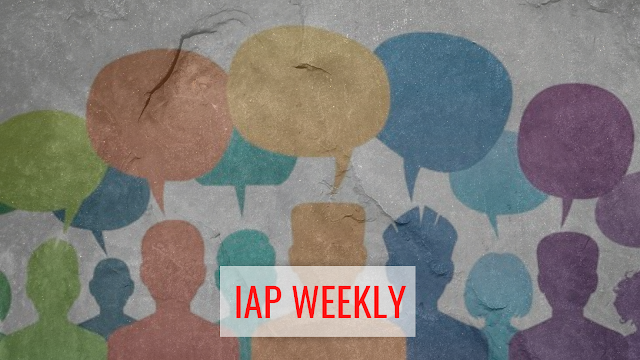Humans as a species are mind-bogglingly new on earth. Present consensus puts the first humans about 200,000 years ago - blinks in the eyes of biological evolution. Language (note the singular number), is at least as new as humans and the diversity of languages - even newer. Languages rise and fall, twist and turn, grow up into powerful beasts or shrivel up and die, leaving little trace, for before the invention of writing, there was no way to fossilise language. So convoluted is the origin story of language that inquiry into the origins of language was banned by the Société de Linguistique de Paris in 1866 because 'speculative flourishes far outpaced hard evidence', which affected the academic discipline till the end of the last century. Yet, in spite of so very little being known about the origins of language and rampant misconceptions about how it functions, almost nothing else incites passions in humans the same way.
As culture, language holds the power of inclusion and exclusion, which is a question of life and death for a language and its speakers. Tales like those of the Migdal Bavel (Tower of Babel) speak of the unifying power of language, and the divisive power of diversity. Hence it is possibly from prehistorical times that its power was recognised and patronised. Patronage determines which dialect gains power. As a common quib attributed to Max Weinrich goes : A language is a dialect with an army and a navy. And this is where the troubles come in - with entities and imagined or invented traditions that appropriate what essentially belongs to people and communities.
The existence of states is by no means new, neither are language policies. Yet, states of yore were perhaps more accommodating, if we are to believe the multilingual inscriptions like the Rosetta Stone (in Ancient Egyptian using hieroglyphic and Demotic scripts, as well as Ancient Greek) or the Kandahar Ashokan Edict (in Classical Greek and Aramaic). Languages enrich themselves under royal patronage, as is evident in the extensive borrowing from the languages of the Norman kings into the English of the Anglo-Saxons after 1066. Sometimes newer languages are born through the use of a particular community, like Yiddish. Sometimes languages die, as in the case of Aka-Sare, an Andamanese language, whose last speaker died on 4 April 2020. Sometimes they are revived, as in the case of Cornish, whose last native speaker died in the 1890s, but conscious efforts have raised the language now from extinct to critically endangered. At the crux of all of this is community - a people, and in antagonism to all of this, is the modern form of the kingdoms of yore - the nation-state. In spite of the existence of modern multilingual states and language policies (Switzerland, Belgium, South Africa), I believe that it is the very existence of mandates that are antagonistic to the organic multilingualism and rights of speakers of certain languages.
Nationalism, the feeling of belonging to a nation-state, is a modern invention. A few centuries ago when maps were increasingly becoming available everywhere, nationalism, as I jokingly say, became the process of carving up the land and sometimes water, by narrow domestic walls and allocating the people living there to a tradition, usually invented. In that situation, in spite of what remains on paper, appropriation is bound to happen. Identities get rolled into another, often without consent. The French state is inevitably identified with the French language - a name derived from the Germanic tribe, the Franks. Yet the modern borders of the nation state of France is not the only place where the people natively call themselves speakers of French! This reminds me of a personal anecdote - a friend of time truly believed that the origin of French is the French State! Even in the birthplace of the language in Western Europe, the
evolution of the modern French language from the Gallo-Romance language spills out into modern southern Belgium, modern western Switzerland, and the Aosta Valley of modern day Italy, feeds itself from the language of the Romans, and eats the Occitan languages. Belgians from Wallonia, and the Swiss Romands are as native to the French language as to a citoyen of the Fifth Republic. The Aosta Valley in Italy adopted Modern French as an official language in 1536, three years before what was then France. Yet websites show the French Tricolour as the language. I will not even go into the complexities of colonialism, and the relation of languages like English, French, Spanish and Portuguese with American, Asian, and African nations.
Let us look at South Asia now. The Indian Tricolour represents Hindi more often than not, when there are hundreds of other languages spoken in India. Moreover more people in India do not have Hindi as a native tongue, than who do. The flag of Bangladesh, a state born out of war and struggles that started over linguistic rights, represents the Bengali language to many, when Bengali is the second most spoken language in India. Punjabi is the most spoken native language of Pakistan, yet the national language of the state is Urdu. Afghanistan chooses to call the Persian spoken in the state as Dari, and not Persian, as it is called in Iran. Sri Lanka went through a bloody decades long civil war which started with not recognising the linguistic rights of its Tamil speaking minority. These are just some of the issues - more often than not, sub-nationalisms and ethno-nationalism get entwined with the language issue, leading to further alienation.
In a series of posts, we intend to explore the issues of language and nations, identities and persecution, taking up examples from around the world, to present how the dynamics of this very human faculty, plays itself out.

Comments
Post a Comment